
Reissuing the 3rd release from drummer John Steven's Spontaneous Music Ensemble with 31 minutes of previously unissued material, with participants including Derek Bailey, Kenny Wheeler, Evan Parker, Dave Holland, Maggie Nichols, Trevor Watts, Johnny Dyani, &c &c.
Out of Stock
Quantity in Basket: None
Log In to use our Wish List
Shipping Weight: 3.00 units
Sample The Album:
Nik Bryce-cello
Dave Holland-doublebass
Jeff Clyne-doublebass
John Stevens-drums
Brian Smith-flute
Derek Bailey-electric guitar
Trevor Watts-Piccolo flute
Peter Lemur-piano
Evan Parker-soprano saxophone
Norma Winstone-voice
Pepi Lemer-voice
Johnny Dyani-doublebass
Kenny Wheeler-Flugelhorn
Carolann Nicholls-voice
Maggie Nicols-voice
Click an artist name above to see in-stock items for that artist.
UPC: 5030243503322
Label: Emanem
Catalog ID: 5033
Squidco Product Code: 19661
Format: CD
Condition: New
Released: 2014
Country: Great Britain
Packaging: Cardboard Gatefold 3 Panels
Tracks 1 & 4 recorded in a London studio in January 1968 by Eddie Kramer.
Tracks 2 & 3 recorded in a London studio in February 1969 by Eddie Offord. A reissue of Marmalade LP 608008 (2384009) plus 31 minutes previously unissued.
"A long overdue reappearance of the third Spontaneous Music Ensemble LP. One version of Oliv features Kenny Wheeler and Derek Bailey soloing over a four-person voice and saxophone drone which is eventually joined by a piano/bass/drums rhythm section. The second version is an improvisation by the quartet of John Stevens, Maggie Nicols, Trevor Watts and Johnny Dyani - one of the great early examples of the free improvisation era, and the recording debut of Nicols.
Also included are one and a half takes of Familie by an eleven piece group, the earliest recorded example of a large group SME performance. Strongly influenced by Gagaku (Japanese court music), this ensemble comprises two voices, three winds, three strings, piano, guitar, and percussion."-Emanem

The Squid's Ear!
Artist Biographies
• Show Bio for Dave Holland "Dave Holland is a bassist, composer, bandleader whose passion for musical expression of all styles, and dedication to creating consistently innovative music ensembles have propelled a professional career of more than 50 years, and earned him top honors in his field including multiple Grammy awards and the title of NEA Jazz Master in 2017. Holland stands as a guiding light on acoustic and electric bass, having grown up in an age when musical genres-jazz, rock, funk, avant-garde, folk, electronic music, and others-blended freely together to create new musical pathways. He was a leading member of a generation that helped usher jazz bass playing from its swing and post-bop legacy to the vibrancy and multidiscipline excitement of the modern era, extending the instrument's melodic, expressive capabilities. Holland's virtuosic technique and rhythmic feel, informed by an open-eared respect of a formidable spread of styles and sounds, is widely revered and remains much in demand. To date, His playing can be heard on hundreds of recordings, with more than thirty as a leader under his own name. Holland first rose to prominence in groundbreaking groups led by such legends as Miles Davis, Stan Getz, Sam Rivers, Betty Carter, and Anthony Braxton-as well as collaborations with the likes of Chick Corea, Gary Burton, Jack DeJohnette, and John McLaughlin. Carrying such an enviable history Holland does with little fanfare and extreme humility; to him what matters most is the immediate musical project at hand. Fittingly, he is today more celebrated for the bands that he continues to assemble, record and perform with-ensembles which range from duos and trios to big bands, and often feature musicians like Steve Coleman, Robin and Kevin Eubanks, Jason Moran, Chris Potter, Eric Harland, among many others who were bound for their own headline-status. The consistent priority connecting all of Holland's projects is an abiding sense of challenge-to himself, his fellow musicians, and his listeners. His comments on this driving force in his career serve as a personal credo: "My take on the relationship with the audience is that you don't want to underestimate their ability to hear the music. You want to be as clear as possible in your musical statement and not be obscure in terms of what it is you're doing. At the same time, you don't want to compromise on your creative ambitions because that's the driving force that's going to develop the music and keep it relevant for me. Outside of the audience, there's the aspect of me needing to be interested in what I'm doing and be stimulated by it in a challenging situation which is going to continue to allow me to grow as a player and composer." Holland was born in Wolverhampton, United Kingdom in 1946, and even before reaching puberty played ukulele and then guitar, having fallen under the spell of skiffle music like most British youth during the 1950s and early '60s. As an adolescent, he switched over to the low end of the string family, an uncle fabricating his first "tea-chest bass" out of the thin wooden crates in which tea was shipped. The bass ultimately proved the instrument that steered him away from a working-class destiny. At the ripe age of 14, he began playing R&B, rock and pop tunes for dances and in clubs with local bands, and visiting U.S. artists like Roy Orbison, Chet Atkins, and Johnnie Ray. By his late teens Holland began exploring an expanding palette of jazz styles and it was clear that music was Holland's calling. The search for more opportunities, experience, and advanced music education led the young bassist to journey from The Midlands to work in London in 1964, where he began to study with James Edward Merrett, the principal bassist with the London Philharmonic. A year later, Merrett recommended him for a scholarship to the Guildhall School of Music and Drama and Holland was on his way. The mid-'60s were an exciting time to be in "Swinging" London: the U.K. was pulling itself free from an extended postwar, economic decline and a whirlwind of fresh, cultural ideas (especially musical) was in the air. Holland was soon exploring more advanced classical and avant-garde music, as well as the work of jazz bass masters from Ray Brown, Leroy Vinegar and Charles Mingus, to Scott LaFaro, Jimmy Garrison, Ron Carter and Gary Peacock. He began to perform regularly with bands fronted by leaders at the cutting edge of the U.K. jazz scene: Tubby Hayes, Ronnie Scott, Chris McGregor, Evan Parker, and John Surman. Holland was a mere 19 years old when he began to appear at Ronnie Scott's jazz club in London's Soho district, supporting touring jazz veterans like Ben Webster, Coleman Hawkins and Joe Henderson. That was the venue in which famed trumpeter Miles Davis-who was about to transition from purely acoustic music to more electric instrumentation in 1968, including rock and funk influences-first heard Holland. Davis asked him to take over the bass chair in his band at a time when generations of musicians and music fans were intensely focused on every step the trumpeter was taking. Joining Davis's groundbreaking, semi-electric band was the catapult that launched Holland's career to the international stage. As the world watched and listened, he contributed to albums that pointed the way to the future-Filles De Kilimanjaro, In A Silent Way, Bitches Brew-and performed in jazz clubs and rock festivals, helping to lay the groundwork for the rise of Fusion jazz, an important member of a brotherhood of innovators adept at older and newer jazz vocabularies. While still with Davis, Holland gigged and recorded with other musicians as well, including the Thad Jones/Mel Lewis Orchestra, Chick Corea, and Joe Henderson. Holland left Davis's employ in 1970 and immediately co-founded Circle-the influential if short-lived free-jazz quartet, with Corea, Anthony Braxton and Barry Altschul. After the breakup of Circle in late '71, Holland found himself working in bands led by the likes of Stan Getz, Thelonious Monk, Braxton, and initiating an enduring relationship with saxophonist/bandleader Sam Rivers. By 1972, Holland relocated to upstate New York, and began recording under his own name, beginning a long-standing association with the Munich-based ECM label. It was during this period of re-establishment that he began participating with vibraphonist Karl Berger's Creative Music Studio, and co-founded the Gateway Trio with John Abercrombie and Jack DeJohnette. Holland later joined Betty Carter's group for a year, and served as a sideman on a wide range of recording projects that featured blues singer/guitarist Bonnie Raitt, vocalist Maria Muldaur, and bluegrass heavyweights John Hartford, Norman Blake, and Vassar Clements. In '77, Holland began performing solo bass concerts, which led to the studio album Emerald Tears, which he later followed with the solo cello recording Life Cycle in '83. As the '80s began, Holland stepped forward with a working band of his own for the first time. The Dave Holland Quintet was comprised of alto saxophonist Steve Coleman, trumpeter Kenny Wheeler, trombonist Julian Priester, and drummer Steve Ellington. Their 1984 debut was well-received critically, and initiated a long run of groups that varied in musical approach-smaller lineups focusing on lengthy improvisations, larger ensembles dealing with intricate arrangements- and evolved as new arrivals, like drummer Marvin "Smitty" Smith and guitarist Kevin Eubanks, who all became part of Holland's creative circle. In 1990, Holland debuted Extensions-a quartet album featuring Kevin Eubanks, Coleman and Smith-that was voted Album of the Year by Downbeat magazine. A year later, on the same week, he recorded World Trio, featuring Eubanks on acoustic guitar and percussionist Mino Cinelu, and Phase Space, a duo album with Steve Coleman. These were followed in '93 by Holland's third solo effort, Ones All (both World Trio and Ones All were originally released on the Intuition label.) By '97, the Dave Holland Quintet included a mix of younger and veteran players, with vibraphonist Steve Nelson and trombonist Robin Eubanks (Kevin's brother) alongside saxophonist Chris Potter and drummer Billy Kilson (and later Nate Smith.) While most of his creative choices as a bandleader are the result of feel and intuition, Holland admits a conscious decision when it comes to combining musicians of varying levels of experience. "I'm an equal opportunity employer. I don't think about anything to do with gender, race or age. I'm looking for the music. I listen to the music with my ears, but at the same time, I am also conscious of the fact that it's very important that there is intergenerational contact in the music. Older players should play with younger players and vice-versa so we have a chance to cross-pollinate our influences and backgrounds. This is how the music grows and expands." In the 1990s, Holland's desire to focus on his compositional and arranging skills led to the formation of the Dave Holland Big Band, a group that that led to his notching two Grammy awards for Best Large Jazz Ensemble. Around the same time, he earned a third for an all-star quintet with old colleagues Burton, Corea, Pat Metheny and Roy Haynes. During the '90s, Holland also revisited a number of historic collaborations-including the Gateway Trio, and working with Herbie Hancock-and in the 2000s, Holland expanded his focus to new collaborations: the comically named "ScoLoHoFo" quartet featuring Joe Lovano, John Scofield, and Al Foster; as well as a duo with Jim Hall. In 2003, Holland departed ECM and formed his own label, Dare2 Records, on which he has issued almost all of his recent recordings. In 2005, Dare2 premiered with Overtime, a big band project including music commissioned by the Monterey Jazz Festival. A year later, Critical Mass featured his Quintet (the first with Nate Smith), and Pass It On in 2008, a sextet performing arrangements in a mini-big band style (with, among others, Robin Eubanks, pianist Mulgrew Miller, drummer Eric Harland.) In 2010, Holland released two recordings: the live octet album Pathways, and Hands, a duet with flamenco guitarist Pepe Habichuela. In 2013, Holland dug deeper into his Fusion roots, unveiling his quartet Prism with Harland, Kevin Eubanks, and keyboardist Craig Taborn; and a year later, Holland teamed up with pianist and longtime friend Kenny Barron to record The Art Of Conversation for the Blue Note label. The remarkable rate at which Holland leads or collaborates his way into fresh and exciting projects proves he has no plans to diminish the range nor frequency of his creative drive. His band lineups reveal that his ear is still to the ground, listening for and recognizing fresh and deserving talent, and that many are the musicians who are happy to perform or record with him. As Holland prepares to celebrate his 70th year, he is currently playing with a new group, the Aziza quartet, co-founded with Harland, saxophonist Chris Potter, and guitarist Lionel Loueke. As a leader and collaborator, Holland continues to tour the world and it comes as no surprise that he has and still serves the music in an educational role, having worked during the 1980s as artistic director of the Banff Centre's jazz summer program (Canada), and as a faculty member for two years at the New England Conservatory of Music in the '90s, where he still serves as an artist in residence (as he does at the Royal Academy of Music.) He has also been elected a Fellow of the Guildhall School-his alma mater-and has received honorary doctorates from Birmingham Conservatoire (UK), Berklee College of Music, and the New England Conservatory. Most recently, Holland was made an Honorary Member of the Royal Academy of Music (UK)-a rare honor as membership is limited to 300 living musicians-and he's been named a 2017 Jazz Master by the National Endowment for the Arts. Over the years and through countless musical experiences, Holland has come to define his purpose as a musician-and he articulates it well: "I'm trying to create music that exists on multiple levels, such as simpler elements along with more complex elements. To me, a lot of great art, whether it's visual, musical or written, has an ability to do those things-to offer some fundamental truths that echo in people, yet at the same time, introduce them to a new way of looking at those fundamentals that gives them a little different perspective..." ^ Hide Bio for Dave Holland • Show Bio for John Stevens "John William Stevens (10 June 1940 in Brentford, Middlesex - 13 September 1994 in Ealing, west London) was an English drummer. He was one of the most significant figures in early free improvisation, and a founding member of the Spontaneous Music Ensemble (SME). Stevens was born in Brentford, the son of a tap dancer. He used to listen to jazz as a child, but was initially more interested in drawing and painting (media through which he also expressed himself throughout his life). He studied at the Ealing Art College and then started work in a design studio, but left at 19 to join the Royal Air Force. He studied the drums at the Royal Air Force School of Music in Uxbridge, and while there met Trevor Watts and Paul Rutherford, two musicians who became close collaborators. In the mid-1960s Stevens began to play in London jazz groups alongside musicians like Tubby Hayes and Ronnie Scott, and in 1965 he fronted a septet. Influenced by the free jazz he was hearing coming out of the United States by players like Ornette Coleman and Albert Ayler, his style began to move away from fairly traditional be-bop to something more experimental. In 1966 SME was formed with Watts and Rutherford and the group moved into the Little Theatre Club at Garrick Yard, St. Martin's Lane, London to develop their new music. In 1967 their first album, Challenge, was released. Stevens then became interested in the music of Anton Webern, and the SME began to play generally very quiet music. Stevens also became interested in non-Western musics. The SME went on to make a large number of records with an ever changing line-up and an ever changing number of members, but Stevens was always there, at the centre of the group's activity. He also played in a number of other groups, drumming in Watts' group Amalgam and later forming bands like Freebop and Fast Colour, for example, but the SME remained at the centre of his activities. In the latter part of 1967 Evan Parker joined the SME and worked closely with Stevens in the group, eventually becoming one of the longest standing members. He later summed up Stevens' approach to improvising in two basic maxims: if you can't hear another musician, then you're too loud; and there is no point in group improvisation if what you are playing doesn't relate to what other members of the group are playing. Stevens also devised a number of basic starting points for improvisation. These were not "compositions" as such, but rather a means of getting improvisational activity started, which could then go off in any direction. One of these was the so-called "Click Piece" which essentially asked for each player to repeatedly play a note as short as possible. Stevens played alongside a large number of prominent free improvisors in the SME, including Derek Bailey, Peter Kowald, Julie Tippetts and Robert Calvert, but from the mid-1970s, the make-up of the SME began to settle down to a regular group of Stevens, Nigel Coombes playing violin, and Roger Smith playing guitar. During the mid-1970s Stevens played regularly with guitarist and songwriter John Martyn as part of a trio that included bassist Danny Thompson. This line up can be heard on Martyn's 1976 recording Live at Leeds. From 1983 Stevens was involved with Community Music (CM), an organisation through which he took his form of music making to youth clubs, mental health institutions and other unusual places. Notes taken during these sessions were later turned into a book for the Open University called Search and Reflect (1985). In the late 70s and early 80s John was a regular performer at the Bracknell Jazz Festival. Aside from SME, Stevens also ran or helped to organise groups that were more jazz or jazz-rock based, such as Splinters, the John Stevens Dance Orchestra, Away, Freebop, Folkus, Fast Colour, PRS, and the John Stevens Quintet and Quartet. He also contributed significantly to Trevor Watts' group Amalgam and Frode Gjerstad's Detail, as well as collaborating with Bobby Bradford on several occasions. The SME continued to play, the last time being in 1994 with a group including John Butcher. Stevens died later that year." ^ Hide Bio for John Stevens • Show Bio for Derek Bailey "Derek Bailey (29 January 1930 - 25 December 2005) was an English avant-garde guitarist and leading figure in the free improvisation movement. Bailey was born in Sheffield, England. A third-generation musician, he began playing the guitar at the age of ten, initially studying music with his teacher and Sheffield City organist C. H. C. Biltcliffe, an experience that he did not enjoy, and guitar with his uncle George Wing and John Duarte. As an adult he worked as a guitarist and session musician in clubs, radio, dance hall bands, and so on, playing with many performers including Morecambe and Wise, Gracie Fields, Bob Monkhouse and Kathy Kirby, and on television programs such as Opportunity Knocks. Bailey's earliest foray into 'what could be called free improvised music' was in 1953 with two other guitarists in their shared flat in Glasgow. He was also part of a Sheffield-based trio founded in 1963 with Tony Oxley and Gavin Bryars called "Joseph Holbrooke" (named after the composer, whose work they never actually played). Although originally performing relatively "conventional" modal, harmonic jazz this group became increasingly free in direction. Bailey moved to London in 1966, frequenting the Little Theatre Club run by drummer John Stevens. Here he met many other like-minded musicians, such as saxophonist Evan Parker, trumpet player Kenny Wheeler and double bass player Dave Holland. These players often collaborated under the umbrella name of the Spontaneous Music Ensemble, recording the seminal album Karyobin for Island Records in 1968. In this year Bailey also formed the Music Improvisation Company with Parker, percussionist Jamie Muir and Hugh Davies on homemade electronics, a project that continued until 1971. He was also a member of the Jazz Composer's Orchestra and Iskra 1903, a trio with double-bass player Barry Guy and tromboneist Paul Rutherford that was named after a newspaper published by the Russian revolutionary Vladimir Lenin. In 1970, Bailey founded the record label Incus with Tony Oxley, Evan Parker and Michael Walters. It proved influential as the first musician-owned independent label in the UK. Oxley and Walters left early on; Parker and Bailey continued as co-directors until the mid-1980s, when friction between the men led to Parker's departure. Bailey continued the label with his partner Karen Brookman until his death in 2005[citation needed]. Along with a number of other musicians, Bailey was a co-founder of Musics magazine in 1975. This was described as "an impromental experivisation arts magazine" and circulated through a network of like-minded record shops, arguably becoming one of the most significant jazz publications of the second half of the 1970s, and instrumental in the foundation of the London Musicians Collective. 1976 saw Bailey instigate Company, an ever-changing collection of like-minded improvisors, which at various times has included Anthony Braxton, Tristan Honsinger, Misha Mengelberg, Lol Coxhill, Fred Frith, Steve Beresford, Steve Lacy, Johnny Dyani, Leo Smith, Han Bennink, Eugene Chadbourne, Henry Kaiser, John Zorn, Buckethead and many others. Company Week, an annual week-long free improvisational festival organised by Bailey, ran until 1994. In 1980, he wrote the book Improvisation: Its Nature and Practice. This was adapted by UK's Channel 4 into a four-part TV series in the early '90s, edited and narrated by Bailey. Bailey died in London on Christmas Day, 2005. He had been suffering from motor neurone disease." ^ Hide Bio for Derek Bailey • Show Bio for Trevor Watts "Trevor Charles Watts (born 26 February 1939 in York) is an English jazz and free-improvising alto and soprano saxophonist. He is largely self-taught, having taken up the cornet at age 12 then switched to saxophone at 18. While stationed in Germany with the RAF (1958-63), he encountered the drummer John Stevens and trombonist Paul Rutherford. After being demobbed he returned to London. In 1965 he and Stevens formed the Spontaneous Music Ensemble, which became one of the crucibles of British free improvisation. Watts left the band to form his own group Amalgam in 1967, then returned to SME for another stretch that lasted until the mid-1970s. Another key association was with the bassist Barry Guy and his London Jazz Composers' Orchestra, an association that lasted from the band's inception in the 1970s up to its (permanent?) disbandment in the mid-1990s. Though he was initially strongly identified with the avant-garde, Watts is a versatile musician who has worked in everything from straight jazz contexts to rock and blues. His own projects have come increasingly to focus on blending jazz and African music, notably the Moiré Music ensemble which he has led since 1982 in configurations ranging from large ensembles featuring multiple drummers to more intimate trios. He has only occasionally recorded in freer modes in recent years, notably the CD 6 Dialogues, a duet album with Veryan Weston (the pianist in earlier editions of Moiré Music). A solo album, World Sonic, appeared on Hi4Head Records in 2005. Watts has toured the world over numerous times, run workshops, received grants and commissions, and he has collaborated with some of the great jazz musicians including Archie Shepp, Steve Lacy, Don Cherry and Jayne Cortez. As of 2011, he continues to travel and toured North American with Veryan Weston." ^ Hide Bio for Trevor Watts • Show Bio for Evan Parker "Evan Parker was born in Bristol in 1944 and began to play the saxophone at the age of 14. Initially he played alto and was an admirer of Paul Desmond; by 1960 he had switched to tenor and soprano, following the example of John Coltrane, a major influence who, he would later say, determined "my choice of everything". In 1962 he went to Birmingham University to study botany but a trip to New York, where he heard the Cecil Taylor trio (with Jimmy Lyons and Sunny Murray), prompted a change of mind. What he heard was "music of a strength and intensity to mark me for life ... l came back with my academic ambitions in tatters and a desperate dream of a life playing that kind of music - 'free jazz' they called it then." Parker stayed in Birmingham for a time, often playing with pianist Howard Riley. In 1966 he moved to London, became a frequent visitor to the Little Theatre Club, centre of the city's emerging free jazz scene, and was soon invited by drummer John Stevens to join the innovative Spontaneous Music Ensemble which was experimenting with new kinds of group improvisation. Parker's first issued recording was SME's 1968 Karyobin, with a line-up of Parker, Stevens, Derek Bailey, Dave Holland and Kenny Wheeler. Parker remained in SME through various fluctuating line-ups - at one point it comprised a duo of Stevens and himself - but the late 1960s also saw him involved in a number of other fruitful associations. He began a long-standing partnership with guitarist Bailey, with whom he formed the Music Improvisation Company and, in 1970, co-founded Incus Records. (Tony Oxley, in whose sextet Parker was then playing, was a third co-founder; Parker left Incus in the mid-1980s.) Another important connection was with the bassist Peter Kowald who introduced Parker to the German free jazz scene. This led to him playing on Peter Brötzmann's 1968 Machine Gun, Manfred Schoof's 1969 European Echoes and, in 1970, joining pianist Alex von Schlippenbach and percussionist Paul Lovens in the former's trio, of which he is still a member: their recordings include Pakistani Pomade, Three Nails Left, Detto Fra Di Noi, Elf Bagatellen and Physics. Parker pursued other European links, too, playing in the Pierre Favre Quartet (with Kowald and Swiss pianist Irene Schweizer) and in the Dutch Instant Composers Pool of Misha Mengelberg and Han Bennink. The different approaches to free jazz he encountered proved both a challenging and a rewarding experience. He later recalled that the German musicians favoured a "robust, energy-based thing, not to do with delicacy or detailed listening but to do with a kind of spirit-raising, a shamanistic intensity. And l had to find a way of surviving in the heat of that atmosphere ... But after a while those contexts became more interchangeable and more people were involved in the interactions, so all kinds of hybrid musics came out, all kinds of combinations of styles." A vital catalyst for these interactions were the large ensembles in which Parker participated in the 1970s: Schlippenbach's Globe Unity Orchestra, Chris McGregor's Brotherhood of Breath, Barry Guy's London Jazz Composers Orchestra (LJCO) and occasional big bands led by Kenny Wheeler. In the late 70s Parker also worked for a time in Wheeler's small group, recording Around Six and, in 1980, he formed his own trio with Guy and LJCO percussionist Paul Lytton (with whom he had already been working in a duo for nearly a decade). This group, together with the Schlippenbach trio, remains one of Parker's top musical priorities: their recordings include Tracks, Atlanta, Imaginary Values, Breaths and Heartbeats, The Redwood Sessions and At the Vortex. In 1980, Parker directed an Improvisers Symposium in Pisa and, in 1981, he organised a special project at London's Actual Festival. By the end of the 1980s he had played in most European countries and had made various tours to the USA, Canada, Australia, New Zealand and Japan. ln 1990, following the death of Chris McGregor, he was instrumental in organising various tributes to the pianist and his fellow Blue Notes; these included two discs by the Dedication Orchestra, Spirits Rejoice and lxesa. Though he has worked extensively in both large and small ensembles, Parker is perhaps best known for his solo soprano saxophone music, a singular body of work that in recent years has centred around his continuing exploration of techniques such as circular breathing, split tonguing, overblowing, multiphonics and cross-pattern fingering. These are technical devices, yet Parker's use of them is, he says, less analytical than intuitive; he has likened performing his solo work to entering a kind of trance-state. The resulting music is certainly hypnotic, an uninterrupted flow of snaky, densely-textured sound that Parker has described as "the illusion of polyphony". Many listeners have indeed found it hard to credit that one man can create such intricate, complex music in real time. Parker's first solo recordings, made in 1974, were reissued on the Saxophone Solos CD in 1995; more recent examples are Conic Sections and Process and Reality, on the latter of which he does, for the first time, experiment with multi-tracking. Heard alone on stage, few would disagree with writer Steve Lake that "There is, still, nothing else in music - jazz or otherwise - that remotely resembles an Evan Parker solo concert." While free improvisation has been Parker's main area of activity over the last three decades, he has also found time for other musical pursuits: he has played in 'popular' contexts with Annette Peacock, Scott Walker and the Charlie Watts big band; he has performed notated pieces by Gavin Bryars, Michael Nyman and Frederic Rzewski; he has written knowledgeably about various ethnic musics in Resonance magazine. A relatively new field of interest for Parker is improvising with live electronics, a dialogue he first documented on the 1990 Hall of Mirrors CD with Walter Prati. Later experiments with electronics in the context of larger ensembles have included the Synergetics - Phonomanie III project at Ullrichsberg in 1993 and concerts by the new EP2 (Evan Parker Electronic Project) in Berlin, Nancy and at the 1995 Stockholm Electronic Music Festival where Parker's regular trio improvised with real-time electronics processed by Prati, Marco Vecchi and Phillip Wachsmann. "Each of the acoustic instrumentalists has an electronic 'shadow' who tracks him and feeds a modified version of his output back to the real-time flow of the music." The late 80s and 90s brought Parker the chance to play with some of his early heroes. He worked with Cecil Taylor in small and large groups, played with Coltrane percussionist Rashied Ali, recorded with Paul Bley: he also played a solo set as support to Ornette Coleman when Skies of America received its UK premiere in 1988. The same period found Parker renewing his acquaintance with American colleagues such as Anthony Braxton, Steve Lacy and George Lewis, with all of whom he had played in the 1970s (often in the context of London's Company festivals). His 1993 duo concert with Braxton moved John Fordham in The Guardian to raptures over "saxophone improvisation of an intensity, virtuosity, drama and balance to tax the memory for comparison". Parker's 50th birthday in 1994 brought celebratory concerts in several cities, including London, New York and Chicago. The London performance, featuring the Parker and Schlippenbach trios, was issued on a highly-acclaimed two-CD set, while participants at the American concerts included various old friends as well as more recent collaborators in Borah Bergman and Joe Lovano. The NYC radio station WKCR marked the occasion by playing five days of Parker recordings. 1994 also saw the publication of the Evan Parker Discography, compiled by ltalian writer Francesco Martinelli, plus chapters on Parker in books on contemporary musics by John Corbett and Graham Lock. Parker's future plans involve exploring further possibilities in electronics and the development of his solo music. They also depend to a large degree on continuity of the trios, of the large ensembles, of his more occasional yet still long-standing associations with that pool of musicians to whose work he remains attracted. This attraction, he explained to Coda's Laurence Svirchev, is attributable to "the personal quality of an individual voice". The players to whom he is drawn "have a language which is coherent, that is, you know who the participants are. At the same time, their language is flexible enough that they can make sense of playing with each other ... l like people who can do that, who have an intensity of purpose." " ^ Hide Bio for Evan Parker • Show Bio for Johnny Dyani "Johnny Mbizo Dyani (30 November 1945 - 24 October 1986) was a South African jazz double bassist and pianist, who played with such musicians as Don Cherry, Steve Lacy, David Murray, Finnish guitar player Jukka Syrenius and Leo Smith. Dyani was born and grew up in Duncan Village, a township of the South African city of East London. In the early 1960s, he was a member of South Africa's first integrated jazz band, The Blue Notes, with Mongezi Feza on trumpet, Dudu Pukwana on alto saxophone, Nikele Moyake on tenor saxophone, Chris McGregor on piano, and Louis Moholo on drums. In 1964, the band fled South Africa to seek musical and political freedom. Moholo explained, "We were rebels and we were trying to run away from this apartheid thing. We rebelled against the apartheid regime that whites and blacks couldn't play together. We stood up." In 1966, Dyani toured Argentina with Steve Lacy's quartet. Lacy, Dyani and Moholo recorded The Forest and the Zoo. In 1971 Dyani formed his own group Earthquake Power, and in 1972 co-founded Xaba with Mongezi Feza and Okay Temiz. Performing widely throughout Europe, Dyani moved to Copenhagen, Denmark, in the early 1970s, and about ten years later to Sweden, recording many albums under his own name. He recorded with Dollar Brand (Abdullah Ibrahim), Don Cherry, Steve Lacy, David Murray, Joseph Jarman, Clifford Jarvis, Don Moye, Han Bennink, Brotherhood of Breath, Mal Waldron, Pierre Dørge and many others. Dyani died suddenly in 1986 after a performance in West Berlin." ^ Hide Bio for Johnny Dyani • Show Bio for Kenny Wheeler "Kenneth Vincent John Wheeler, OC (14 January 1930 - 18 September 2014) was a Canadian composer and trumpet and flugelhorn player, based in the U.K. from the 1950s onwards. Most of his performances were rooted in jazz, but he was also active in free improvisation and occasionally contributed to rock music recordings. Wheeler wrote over one hundred compositions and was a skilled arranger for small groups and large ensembles. Wheeler was the patron of the Royal Academy Junior Jazz course. Wheeler was born in Toronto, Ontario, on 14 January 1930. Growing up in Toronto, he began playing cornet at age 12, and became interested in jazz in his mid-teens. Wheeler spent a year studying composition at the Royal Conservatory in Toronto in 1950. In 1952 he moved to Britain. He found his way into the London jazz scene of the time, playing in groups led by Tommy Whittle, Tubby Hayes, and Ronnie Scott. In the late 1950s, he was a member of Buddy Featherstonhaugh's quintet together with Bobby Wellins. Throughout the sixties, he worked with John Dankworth, and also formed part of (Eric Burdon and) the Animals' Big Band that made its only public appearance at the 5th Annual British Jazz & Blues Festival in Richmond (1965) with tenors Stan Robinson, Dick Morrissey and Al Gay, baritone sax Paul Carroll, and fellow trumpets Ian Carr and Greg Brown. In 1968, Wheeler appeared on guitarist Terry Smith's first solo album, Fall Out. Wheeler performed and recorded his own compositions with large jazz ensembles throughout his career, beginning with the first album under his own name, Windmill Tilter (1969), recorded with the John Dankworth band. A CD was released by BGO Records in September 2010. The big band album Song for Someone (1973) fused Wheeler's characteristic orchestral writing with passages of free improvisation provided by musicians such as Evan Parker and Derek Bailey, and was also named Album of the Year by Melody Maker magazine in 1975. It has subsequently been reissued on CD by Parker's Psi label. In the mid-1960s, Wheeler became a close participant in the nascent free improvisation movement in London, playing with John Stevens Parker, the Spontaneous Music Ensemble and the Globe Unity Orchestra. Despite the above-noted accomplishments, much of his reputation rests on his work with smaller jazz groups. Wheeler's first small group recordings to gain significant critical attention were Gnu High (1975) and Deer Wan (1977), both for the ECM label (Gnu High is one of the few albums to feature Keith Jarrett as a sideman since his tenure with Charles Lloyd). One exception from the ongoing collaboration with ECM was his rare album on CBC called Ensemble Fusionaire in 1976. This had three other Canadian musicians and was recorded in St. Mary's Church in Toronto for a different character to the sound than on the ECM recordings. Wheeler was the trumpet player in the Anthony Braxton Quartet from 1971 to 1976, and from 1977 he was also a member of the chamber jazz group Azimuth (with John Taylor and Norma Winstone).Later life In 1997 Wheeler received widespread critical praise for his album Angel Song, which featured an unusual "drummerless" quartet of Bill Frisell (guitar), Dave Holland (bass) and Lee Konitz (alto sax). Wheeler died after a short period of frail health at a nursing home in London on 18 September 2014. He was 84 years old." ^ Hide Bio for Kenny Wheeler • Show Bio for Maggie Nicols "Maggie Nicols (or Nichols, as she originally spelled her name as a performer) (born 24 February 1948), is a Scottish free-jazz and improvising vocalist, dancer, and performer. Nicols was born in Edinburgh as Margaret Nicholson. Her father was from the Isle of Lewis, and her mother is half-French, half-Berber from North Africa. At the age of fifteen she left school and started to work as a dancer at the Windmill Theatre. Her first singing engagement was in a strip club in Manchester at the age of sixteen. At about that time she became obsessed with jazz, and sang with bebop pianist Dennis Rose. From then on she sang in pubs, clubs, hotels, and in dance bands with some of the finest jazz musicians around. In the midst of all this she worked abroad for a year as a dancer (including a six-month stint at the Moulin Rouge in Paris).[citation needed] In 1968, she went to London and joined (as Maggie Nichols) an early improvisational group, the Spontaneous Music Ensemble, with John Stevens, Trevor Watts, and Johnny Dyani, and the group performed that year at Berlin's then new avant-garde festival, Total Music Meeting. In the early 1970s she began running voice workshops at the Oval House Theatre (one of the most important centres for pioneer fringe theatre groups). She both acted in some of the productions and rehearsed regularly with a local rock band. Shortly afterwards she became part of Keith Tippett's fifty-piece British jazz/progressive rock big band Centipede, which included Julie Tippetts, Phil Minton, Robert Wyatt, Dudu Pukwana, and Alan Skidmore. Tippetts, Minton, and Nicols also joined Brian Eley to form the vocal group Voice. Around the same time Nicols began collaborating with the Scottish percussionist Ken Hyder (who had recently moved to London) and his band Talisker.[citation needed] Maggie Nicols recorded an album with the vocalist Julie Tippetts called Sweet and S'Ours which was an FMP]] import. By the late 1970s, Nicols had become an active feminist, and co-founded the Feminist Improvising Group, which performed across Europe, with Lindsay Cooper. She also organised Contradictions, a women's workshop performance group that began in 1980 and dealt with improvisation and other modes of performance in a variety of media including music and dance. Over the years, Nicols has collaborated with other women's groups, such as the Changing Women Theatre Group, and even wrote music for a prime-time television series, Women in Sport. Nicols has also collaborated regularly over the years with Swiss pianist Irene Schweizer and French bassist Joelle Leandre, including tours and three recordings as the trio "Les Diaboliques". Her collaboration with Ken Hyder also continues; the duo incorporate elements of the traditional tunes of their shared Scottish background into jazz improvisations in their most recent project, Hoots and Roots Duo. She has worked with pianists Pete Nu and Steve Lodder, with her own daughter, Aura Marina, with avant-gardists Caroline Kraabel and Charlotte Hug, and with lighting designer Sue Neal in Light and Shade. She performed internationally for several decades, including the Zürich and the Frankfurt "Canaille" festivals, the Victoriaville Festival. She gave solo performances at the Moers Music Festival, the Cologne Triennale, and a number of other creative and improvised music festivals." ^ Hide Bio for Maggie Nicols
11/20/2024
Have a better biography or biography source? Please Contact Us so that we can update this biography.
11/20/2024
Have a better biography or biography source? Please Contact Us so that we can update this biography.
11/20/2024
Have a better biography or biography source? Please Contact Us so that we can update this biography.
11/20/2024
Have a better biography or biography source? Please Contact Us so that we can update this biography.
11/20/2024
Have a better biography or biography source? Please Contact Us so that we can update this biography.
11/20/2024
Have a better biography or biography source? Please Contact Us so that we can update this biography.
11/20/2024
Have a better biography or biography source? Please Contact Us so that we can update this biography.
11/20/2024
Have a better biography or biography source? Please Contact Us so that we can update this biography.
Track Listing:
1. Familie 19:54
2. Oliv I 19:35
3. Oliv II 16:06
4. Familie (Alternative Ending) 11:34
Improvised Music
Free Improvisation
London & UK Improv & Related Scenes
Staff Picks & Recommended Items
EMANEM & psi
Instant Rewards
Search for other titles on the label:
Emanem.

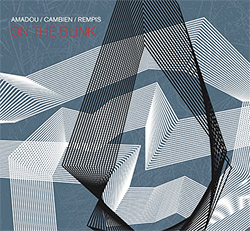

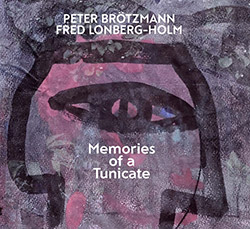
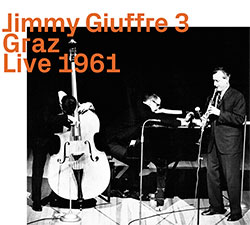



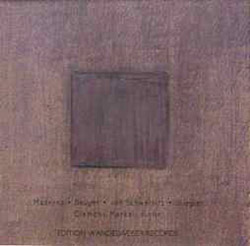
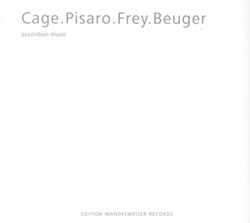
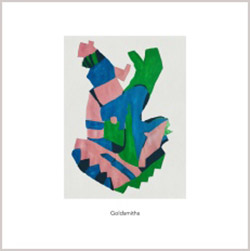

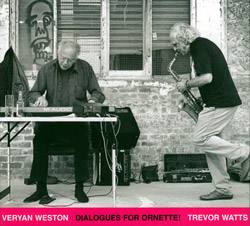

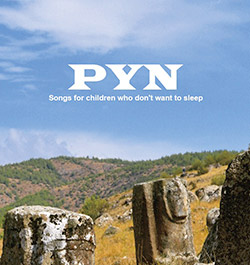








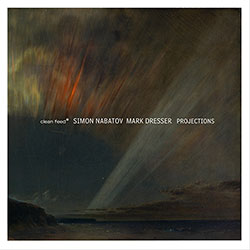
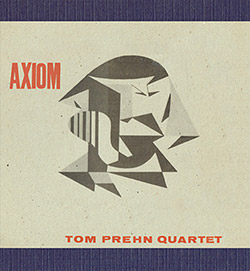




![Guy, Barry / Ken Vandermark: Occasional Poems [2 CDs]](https://www.teuthida.com/productImages/misc4/34849.jpg)
![Novoa / Carter / Mela Trio: Vol.1 [VINYL]](https://www.teuthida.com/productImages/misc4/35236.jpg)


![Elephant9 : Mythical River [VINYL]](https://www.teuthida.com/productImages/misc4/34624.jpg)
![Evans, Peter (Evans / Eldh / Black): Extra [VINYL]](https://www.teuthida.com/productImages/misc4/35279.jpg)

![McPhee, Joe: Straight Up, Without Wings [BOOK]](https://www.teuthida.com/productImages/misc4/35454.jpg)
![Jeck, Philip: rpm [2 CDs]](https://www.teuthida.com/productImages/misc4/35455.jpg)













![Barker / Parker / Irabagon: Bakunawa [VINYL]](https://www.teuthida.com/productImages/misc4/35533.jpg)
![Blaser, Samuel / Marc Ducret / Peter Bruun: Dark Was The Night, Cold Was The Ground [VINYL 10-inch]](https://www.teuthida.com/productImages/misc4/35492.jpg)








![Warren, Kenny (Warren / Hoffman / Ellman): Sweet World [VINYL]](https://www.teuthida.com/productImages/misc4/35451.jpg)




![Blake, Ran / Dave Knife Fabris: Live Amsterdam 2006, First Visit [CD + POSTCARDS]](https://www.teuthida.com/productImages/misc4/35275.jpg)













![DNS: Taking Big Bites Of The Khandas Three Cafes Deep [2 CDs]](https://www.teuthida.com/productImages/misc4/35334.jpg)




![Cleaver, Gerald: The Process [VINYL]](https://www.teuthida.com/productImages/misc4/34966.jpg)




![Alva Noto: HYbr:ID II [VINYL 2 LPs]](https://www.teuthida.com/productImages/misc4/35201.jpg)

![Baron, Derek / Luke Martin: Distinct and Concealed [CASSETTE + DOWNLOAD]](https://www.teuthida.com/productImages/misc4/35079.jpg)

![Lyle, Erica Dawn : Colonial Motels [CASSETTE + DOWNLOAD]](https://www.teuthida.com/productImages/misc4/35080.jpg)









![Sanna, Claudio: Compositori Sardi Contemporanei II [2 CDs]](https://www.teuthida.com/productImages/misc4/35317.jpg)







![Zurria, Manuel: Fame di Vento [3 CDs]](https://www.teuthida.com/productImages/misc4/35167.jpg)

![Granberg, Magnus / Nattens Inbrott / Skogen: Holde Traume, Kehret Wieder! [2 CDs]](https://www.teuthida.com/productImages/misc4/35038.jpg)
![Frey, Jurg: Outermost Melodie [2 CDs]](https://www.teuthida.com/productImages/misc4/35039.jpg)

![Pavone, Jessica: Reverse Bloom [VINYL]](https://www.teuthida.com/productImages/misc4/34895.jpg)




![Modney (Modney / Wooley / Gentile / Roberts / Pluta / Symthe / ...): Ascending Primes [2 CDs]](https://www.teuthida.com/productImages/misc4/34852.jpg)









![Elephant9 with Terje Rypdal: Catching Fire [VINYL 2 LPs]](https://www.teuthida.com/productImages/misc4/35355.jpg)
![Deerlady (Obomsawin, Mali / Magdalena Abrego): Greatest Hits [VINYL]](https://www.teuthida.com/productImages/misc4/34876.jpg)




![Haino, Keiji: Black Blues [2 CDs]](https://www.teuthida.com/productImages/misc4/35109.jpg)



![Surplus 1980: Illusion of Consistency [CD]](https://www.teuthida.com/productImages/misc4/35069.jpg)
![Staiano, Moe: Away Towards the Light [VINYL + DOWNLOAD]](https://www.teuthida.com/productImages/misc4/35037.jpg)



![Caveira (Gomes / Sousa / Abras / Ferrandini): Ficar Vivo [VINYL]](https://www.teuthida.com/productImages/misc4/34643.jpg)
![Gregg, J. J. / David Van Auken: Lunar Prairie [CD w/ DOWNLOAD]](https://www.teuthida.com/productImages/misc4/34611.jpg)

![Coultrain: Mundus [VINYL]](https://www.teuthida.com/productImages/misc4/32439.jpg)
![Mattin: Songbook #6 [VINYL]](https://www.teuthida.com/productImages/misc4/27317.jpg)
![Punkappella: Wake Up [7-inch VINYL]](https://www.teuthida.com/productImages/misc4/17519.jpg)
![Residents, The: WARNING: UNiNC.: Live And Experimental Recordings 1971-1972 [VINYL 2 LPs]](https://www.teuthida.com/productImages/misc4/31521.jpg)
![Coultrain: Phantasmagoria [VINYL]](https://www.teuthida.com/productImages/misc4/30142.jpg)
![Lennon, Sean Ono: Asterisms [VINYL]](https://www.teuthida.com/productImages/misc4/34517.jpg)

![Coley, Byron: Dating Tips for Touring Bands [VINYL]](https://www.teuthida.com/productImages/misc4/17906.jpg)

![Lost Kisses: My Life is Sad & Funny [DVD]](https://www.teuthida.com/productImages/misc4/lostKissesDVD.jpg)